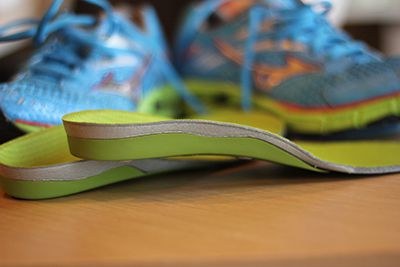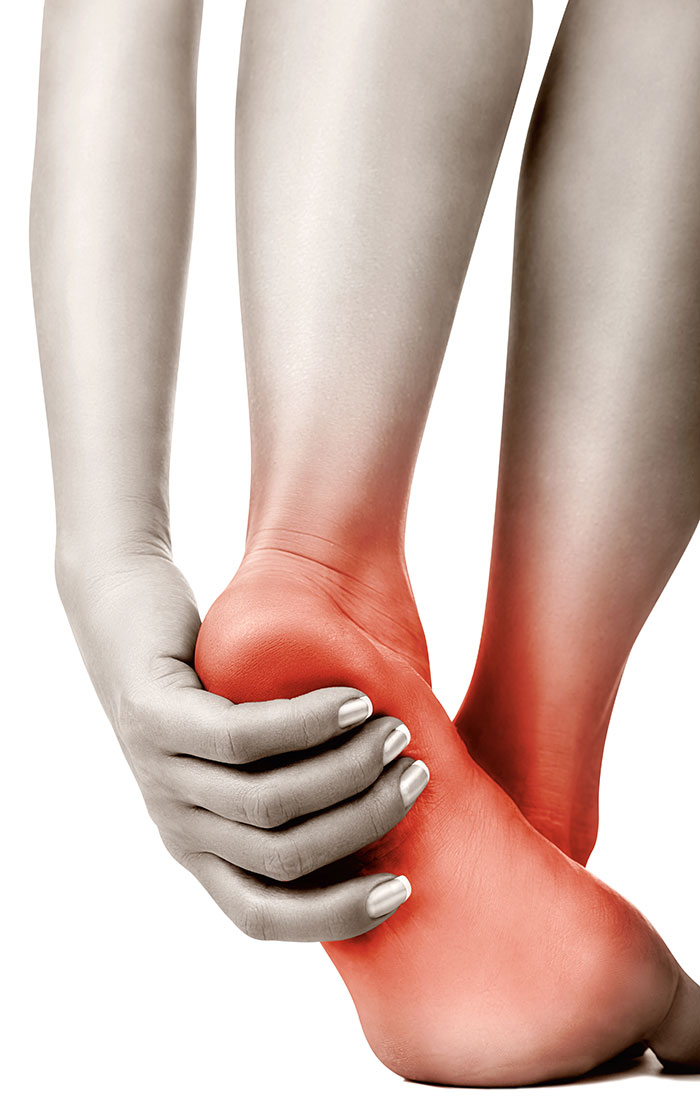Gout Treatments
People typically associate arthritis as a condition that happens as individuals become older. The cartilage that protects joints can wear down over the course of time and result in stiffness, but there is also a form of arthritis that is affected by what you eat. Understanding gout, an arthritic condition that causes painful attacks, can help you to either manage the condition or even keep it from happening in the first place.
What is Gout?
This arthritic condition is usually marked by swelling, stiffness, and burning pain in the joint found at the base of your big toe the first metatarsophalangeal (MP) joint. The first MP joint is the most common location for symptoms when the condition flares up. (Unlike other ailments, this form of arthritis only strikes periodically.) Flare-ups are mostly likely to happen at night and then the condition often goes back into a state of dormancy until its next attack. Periods between these gout attacks might extend as far as a couple of years or decades.
What Does It Happen?
A commonality between the various forms of arthritis is that they all cause stiffness and painful inflammation in joints. When it comes to gout, the stiffness and pain is in response to hyperuricemia, which is a matter of the blood containing excessive amounts of uric acid. This acid is the byproduct from the process of your body breaking down purines, which are substances found in a wide range of foods that are contained in a normal diet.
The uric acid itself is not an issue while it is floating in your blood stream. Once it crystalizes, though, problems can arise. Your pain, discomfort, and subsequent gout attacks are the result of hard uric acid crystals forming in your joints, particularly the big toes MP joints where the temperature is low thus favoring uric acid crystal formation and precipitation.
Which Foods Should be avoided with Gout?
An essential part of gout management is paying close attention to the foods you eat. Food products that have a high purine content will ultimately lead to uric acid, which can then lead to the onset of a painful attack. Given that this is the case, it is a wise idea to limit or avoid your intake of:
- Animal Protein Limiting the quantity of meat consumed to 4 6 total ounces during the course of the day will decrease your risk, but it is even better to simply avoid meat altogether.
- Refined Carbohydrates White breads, cake, and candy all increase uric acid levels and should be avoided.
- Alcohol Beer, wine, and hard liquors ultimately interfere with the bodys natural ability to flush uric acid out through the kidneys.
These may seem like a lot of dietary restrictions, but a focus on healthy foods and the safe, delicious meals you can make from them, can help you realize that there are many options still available.
How can Gout Be Treated?
When it comes to treating and managing this condition, making healthy lifestyle decisions is the right place to start. Restrict or eliminate meat, refined carbohydrates, and alcohol, but also add more beans, legumes, whole grains, fruits, veggies, and low-fat or fat-free dairy into your daily diet. This kind of diet will help, but also incorporate regular exercise into your weekly schedule to keep your bodyweight down. Weight management, exercise, and smart dietary choices are key steps, but your family doctor may need to prescribe medication(s) to reduce your uric acid levels and your Doctor of Podiatric Medicine may inject local anesthetics and cortisone in your affected big toe joint to stop the excruciating pain associated with a sudden gout attack.
Can it Be Prevented?
The steps for treating this condition also are useful for decreasing your risk of ever having the problem in the first place. Simply start with your diet and make sure that you eat plenty of whole grains, legumes, and vegetables. As you do this, make sure that you avoid the common pitfall of not taking in enough calories. A diet that is overly low-calorie can potentially trigger a gout attack.
Effective Gout Care in Ottawa, ON
If you would like addition information, or are currently suffering with pain from gout, Ottawa Foot Practice is here for you. Contact our office by calling (613) 595-9700 or use our online form to schedule your appointment with us.












